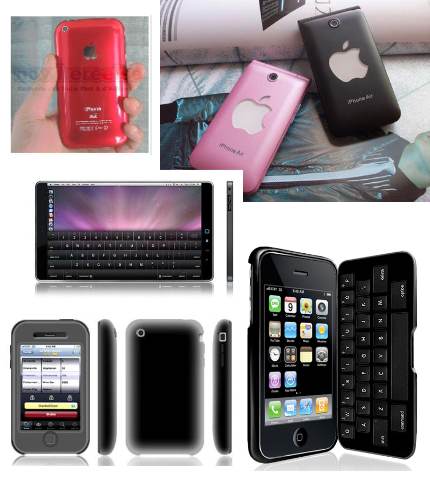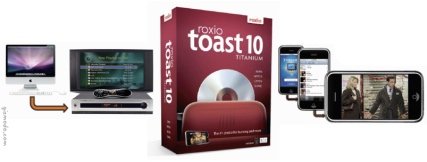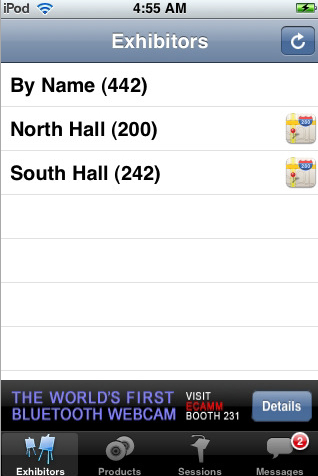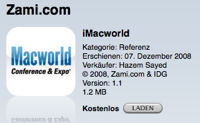[KlimBim] 2009-01-05

Soviel zu den Fake-Bilder der letzten Tage.
Punkt.

David Pogue, Kolumnist der New York Times, spricht über die Mobilfunktrends 2009 in gewohnt unterhaltsamer Art und Weise. Seinen Vortrag eröffnet er mit seiner (scheinbar) neuen musikalischen Leidenschaft, mit der er bereits 2007 das iPhone besang.
30 unterhaltsame (teils informative) Minuten sind garantiert.

Das Brennprogramm Toast der Firma Roxio erschien in seiner ersten zweistelligen Versionsnummer und baut weiter die Sparte der (Video-)Konvertierung aus. So wird es unter anderem möglich, sowohl seine TV-Aufnahmen und viele andere Videoformate umzuwandeln und danach über das UMTS-Netz ans iPhone zu senden.
Ob sich der Anschaffungspreis von 99 € (Update-Preis 79,99 €) lohnt und welche neuen Funktionen noch für iPhone-Besitzer relevant werden könnten, verraten wir euch an dieser Stelle nach einem ausführlichen Testdurchlauf in den nächsten Tagen.

Wer in dieser Woche durch San Francisco und über die letzte MacWorld Expo eilt, findet den von IDG unterstützten Messeführer in digitaler Form im App Store. iMacworld in Version 1.1 bringt neben eingeblendeten Werbebannern viele wertvolle und kostenfreie Messe-Informationen über die Aussteller, deren Standort sowie vorgestellte Produkte und dessen Schulungen mit.
via TUAW
John Gruber verlinkt einen sehr interessanten Artikel von Sean Devine, welcher sich mit der App Store-Kundenbindung und Verkaufspolitik beschäftigt:
The KEY to maximizing iPhone profit is to create very high switching costs for users, just as they did for the iPod via the iTunes Music Store. Apple is using the App Store to create switching costs, and they know that if all of their users have „invested“ in many little applications that will only work on the iPhone (a la songs from the iTunes Music Store), they will eventually have users locked in to a long-term investment in the iPhone franchise.
-> The App Store: First Comes Power
Gruber antwortet mit einer nachvollziehbaren Argumentation…
Are people really going to be less likely to switch to a phone other than the iPhone just because their fart joke apps won’t run on the new phone?
…die wiederum von Sean Devine eine Rückantwort erfährt.
First, there are many high-quality applications for the iPhone, in spite of the fact that more expensive applications aren’t promoted well within the App Store. And, it’s not clear to me that more expensive means better quality in the app store. […] Second, the reason that low-priced apps work to create platform stickiness is that they enable the network effect to happen for many applications (even if they seem silly) very quickly. While Windows‘ dominance was built on Microsoft Office, I believe that iPhone dominance will be built on cheap networked consumer applications.
-> Inconsequential Apps Used by Many People Increase Stickiness
via Daring Fireball
